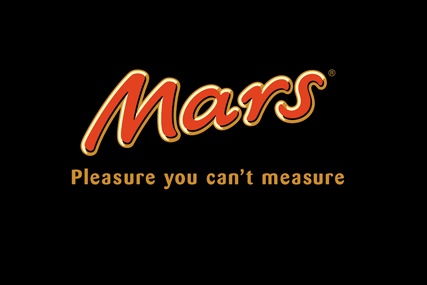
In their quest to hardwire responsible practices into their marketing activities, brands are looking to outsiders for guidance on their products and campaigns. In April, Marketing revealed that Asda was asking influential website Mumsnet for advice on whether certain products could be seen to promote the sexualisation of children.
Now food manufacturer Mars plans to make public the fact that it has been submitting UK marketing activity for its chocolate brands to a three-strong panel, known as the Marketing Advisory Group (MAG), to consider whether it is socially responsible. While Asda's arrangement with Mumsnet is more ad hoc, Mars has set external involvement on a more formal footing.
Driving this development was the establishment of Mars' global marketing code in 2007. The 13-point plan enshrines the company's aims of promoting a healthy lifestyle, avoiding marketing that is aimed at under-12s and discouraging excessive consumption.
Angela Willmott, marketing director of Mars Chocolate, who has pioneered the initiative, says the idea behind the MAG is to 'make sure the marketing code is living and breathing, and not one of those documents that sits in your drawer gathering dust'.
For the past two years, Marketing Society chief executive Hugh Burkitt, Baroness Jean Coussins, a former chief executive of The Portman Group, and specialist teacher and educational consultant Christine Cork have met quarterly with Mars' marketers to review their proposed work.
During these meetings, the MAG members have been shown campaign ideas, often at an early stage, such as a script or draft artwork, and asked how they measure up against Mars' code.
Defending reputation
Burkitt stresses that the recommendations are taken seriously by the marketers, adding that, where the MAG has advised against an approach, this has been taken on board. 'This is a very good idea for companies operating in controversial fields,' he adds.
David Lourie, senior consultant at the responsible business consultancy Good Business, commends Mars for joining up corporate affairs with consumer-facing activities.
'There's sometimes a disconnect between the corporate teams and the brand managers, but it is the brand teams that can potentially do the biggest damage to the reputation of the company,' he warns.
Lourie cites the example of Cadbury's 'Get active' - the widely criticised promotion that encouraged children to collect lots of chocolate wrappers to exchange for comparatively small amounts of sports equipment for schools, as something that would not have got past an external group.
However, not everyone is fully convinced of the value of a second opinion. 'I do worry that this is yet another example of the inexorable slide toward the sort of risk-averse marketing that can eliminate great ideas and real innovation,' says John Mathers, managing director of branding agency Holmes & Marchant.
While he concedes that caution is understandable where children are concerned, Mathers warns that such initiatives could lead to a 'conservative brand and communication landscape'.
Nonetheless, Willmott asserts that the collaboration with MAG has been an entirely positive venture. 'At first I had concerns about this being a hurdle for people, but the reality is that brand managers see it as a huge help,' she says. 'We want to be responsible and doing it is an assistance rather than a blockage in our process.'
Arguments will no doubt rage over whether this added layer helps or hinders the profession, but when a company the size of Mars rolls out an initiative such as the MAG, others will sit up, take note and, in some cases, follow suit. It may not be long before other marketers working in heavily scrutinised sectors also have outsiders poring over their plans; the experience outlined by Willmott suggests there could be much to gain.
INSIDER'S VIEW - DIAGEO
Philip Gladman, Marketing director, Diageo Great Britain
At Diageo, we are intent on ensuring that 100% of our products are marketed responsibly. As you can imagine, the process is a long and thorough one.
We have had the Diageo Marketing Code in place since the group's formation in 1997. It is very close in wording and meaning to the code set by the Committee of Advertising Practice (CAP), but our code goes further in some areas.
Compliance is mandatory and is a fundamental responsibility and accountability of all employees. Our staff and the staff of our agencies undergo rigorous training, which is periodically topped up, to ensure that they fully comprehend not only the meaning of our code and how to apply it, but also its spirit and overall objectives.
Agencies working on our behalf are contractually obliged to abide by the code. In addition, our digital code of practice sets standards for marketing in new formats and using technologies such as mobile phones, websites and social networking. For example, it requires every Diageo brand website to have an age-affirmation gateway page.
Of course, people are fallible, so we have checks and balances at each stage of the creative process and people in different disciplines (legal, marketing, intellectual property and corporate relations) all approving work.
If we find an issue, however small, we make changes to bring the project into compliance before it can proceed. We use an online tool called 'SmartApprove' to co-ordinate approvals and keep a complete audit trail by maintaining a full archive of all comments.
Irresponsible marketing is very much against our interests. We don't want to be an industry that people think acts against public health or society's interests, because that harms our reputation, damages our brands and invites action against us. That is why we place the Diageo Marketing Code at the heart of all our marketing.




.jpg)
.jpeg)
